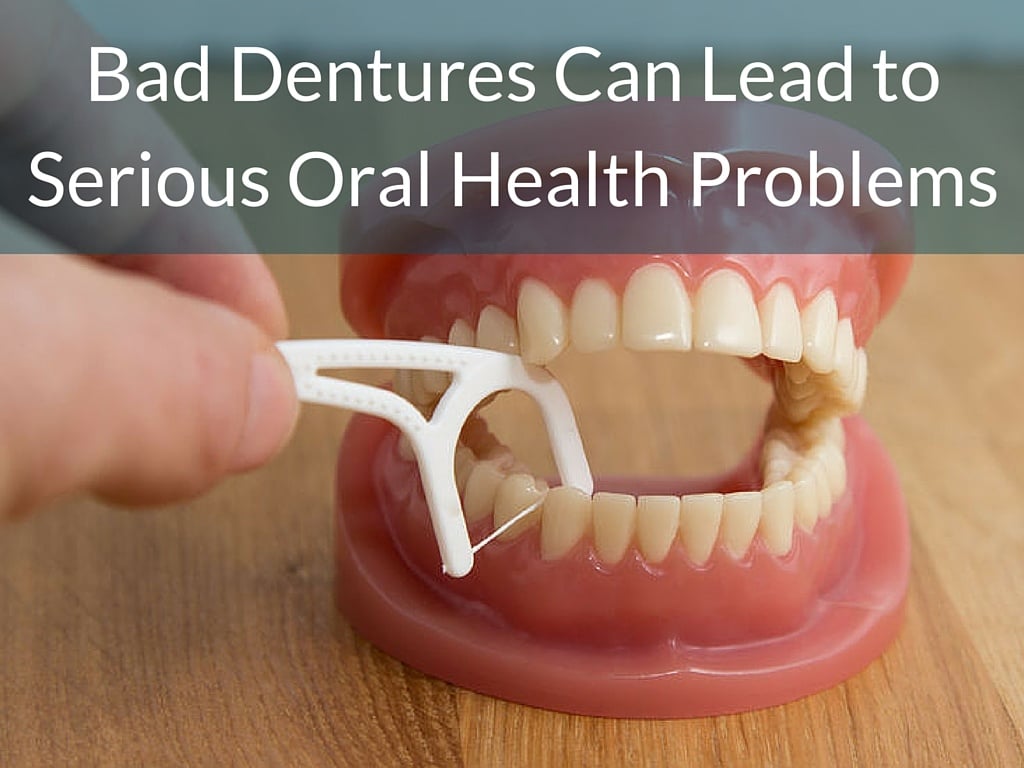
One of the most difficult changes to become accustomed to as we age is the loss of our natural teeth. Yet even with a lifetime of proper brushing and flossing, tooth loss remains a major senior health care issue, whether it involves the loss of a few teeth or all of them. Not only does tooth loss interfere with the ability to chew and speak “normally,” but it can also take a major toll on a person's self-confidence.
Fortunately, dentures can provide a durable, long-lasting solution to missing teeth, and today's dentures are far more lightweight and natural-looking than those you may remember just a few decades ago. Plus, there are immediate or “same-day” dentures that let a person replace his or her teeth as soon as they're extracted—no more waiting around for weeks while dentures are slowly crafted in a lab. Dental implants have also made denture-wearing more comfortable, providing a stable base for dentures to attach to so slippage is prevented.
Still, despite these advances, having “false” teeth doesn't mean an older adult doesn't need to see the dentist regularly. Once an elderly parent is fitted with dentures, he or she still needs routine dental visits to ensure that the dentures continue to fit the way they should—and it’s not just about keeping mom or dad from discomfort. While nearly everyone knows ill-fitting dentures can be uncomfortable, few realize that there are serious, long-term oral health issues that can develop when dentures don't fit properly.
The Consequences of Ill-fitting Dentures
First, loose dentures can slip up and down over the gums or palate. Eventually, all that increased friction causes raw, sore spots to form, and since the human mouth is home to lots of bacteria, it's a recipe for infection.
Ill-fitting dentures can also cause yeast infections of your mouth and palate. Yeast, like bacteria, loves a warm, moist place to grow. The space provided by a loose denture fits the bill to a “T.” As yeast multiply, they can cause two conditions:
- Cheilitis, painful inflammation and cracked skin at the corners of the mouth.
- Stomatitis, inflammation of the mouth and lips that causes red bumps on the roof of the mouth and general mouth soreness.
Plus, when a denture doesn't fit properly, your parent may begin to avoid foods that cause soreness or slippage, resulting in nutritional deficiencies that can affect not just oral health, but overall health and wellness as well. And of course, there's the embarrassment that comes from a denture slipping while speaking or eating, as well as the increased risk of developing bad breath when food particles lodge underneath a loose denture plate.
The Importance of Regular Adjustments
So just why do dentures stop fitting properly over time? Once a person loses his or her teeth, the jaw bones that supported those teeth begins to atrophy or erode. When a tooth is present, the jaw bone continually renews itself in order to support the health of the tooth. But once the tooth is gone, bone cells are no longer renewed at the same rate, and bone tissue begins to gradually disappear. As a result, the gum will begin to shrink, which means dentures will start to feel loose and slip over time.
Having them adjusted and relined when needed helps ensure that dentures adapt to a senior’s changing jaw structure for the best and most comfortable fit possible.
Seeing a dentist regularly is also important to screen for oral cancer and to ensure gums and any remaining teeth stay as healthy as possible. Make sure that an elderly parent with dentures follow all the recommended care guidelines, like proper cleaning techniques and overnight soaking, to prevent the buildup of bacteria and yeast that can cause infections.
No one likes losing their teeth, but good oral care habits can be incorporated into a senior health care routine to improve dental health and reduce the risk of infections and other serious issues.












